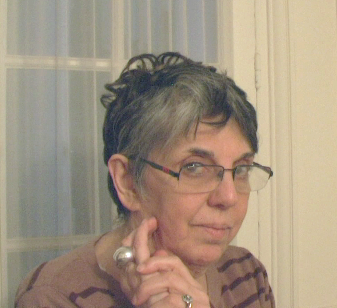The Literary Concept of
One-Page Stories
This approach originates from the French initiative Récit-page (2013), a concept translated into English as One-Page Stories. As the name suggests, these are narratives that unfold within the space of a single page.
This duration, which is also a space, allows for echoes distinct from those found in the short story and different as well from those —often fragmented— of ultra-minimalist writing, which seeks to confine literature to the span of a single line or just a few words.
It is worth noting that the prose poem, which contains narrative elements, can be interpreted as a One-Page story.
This leads to the paradox inherent in any literary constraint: rather than closing off creative spaces, it opens them.
Some may argue that the digital age complicates the definition of a "page". However, since conventions help fill such gaps, we will adhere to the traditional A4 format —though with some flexibility —viewing it primarily as a canvas that enables the work to exist, while allowing the completed image to transcend it.
With a distinct name and domain, One-Page Stories now claim their own province within the broader realm of brevity.
Less concerned with sequence than with sudden flashes of insight, and having to contend with the absence of plot, storyline, or even anecdote, the one-page story draws its resources less from narration than from language itself —its ability to suggest, evoke, subvert, invert, and embrace paradox. Yet it does not dissolve into mere logical curiosities or purely verbal feats: cleverness alone does not make literature.
Regardless of its register, if the one-page story leans towards poetry, it shuns the emphatic and the declamatory; if it smiles, it rejects outright comedy; if it turns solemn, it avoids pathos and sentimental effusion. Lacking any real vocation for truth, it is neither a philosophical inquiry nor a manifesto. It does not seek to educate or moralize, nor does it aim to edify. Often floating on uncertain realities, open to whimsy, it remains distinct from the realm of the fantastic.
Neither a summary nor an abbreviation, nothing in the One-Page Stories calls for expansion or development; for when it is fully realized, it exhibits the self-contained roundness of a small, finely crafted world, revolving around its own literary aesthetic —one that allows for no shortcuts in quality or effort.
All within the protective confines of the page —let it not stray from it!
- Details
- Hits: 1013
 Ada Teller, born in Argentina, has been living in France since 1978. She holds a doctorate in philosophy from the University of Paris IV-Sorbonne but gradually moved away from her academic background to devote herself to literature, particularly the composition of short literary fantasies. Alongside her writing, she contributes to the theoretical exploration of short prose and, since 2013, has dedicated a website open to contributions to the concept of Récit-page. She regularly takes part in academic events, and her texts, whether literary or theoretical, have been featured in various pedagogical and academic publications. Her encounter with translator and writer Jean-Marcel Morlat, who resides in Canada, led her to propose a collaboration to adapt the Récit-page concept for the English-speaking world under the name One-Page Stories.
Ada Teller, born in Argentina, has been living in France since 1978. She holds a doctorate in philosophy from the University of Paris IV-Sorbonne but gradually moved away from her academic background to devote herself to literature, particularly the composition of short literary fantasies. Alongside her writing, she contributes to the theoretical exploration of short prose and, since 2013, has dedicated a website open to contributions to the concept of Récit-page. She regularly takes part in academic events, and her texts, whether literary or theoretical, have been featured in various pedagogical and academic publications. Her encounter with translator and writer Jean-Marcel Morlat, who resides in Canada, led her to propose a collaboration to adapt the Récit-page concept for the English-speaking world under the name One-Page Stories.
 Jean-Marcel Morlat is a Franco-Canadian residing in Quebec. He is a certified translator (OTTIAQ) and holds various Master's degrees (French as a Foreign Language, Information and Communication Technologies in Education, Irish studies and translation), as well as a translation certificate and a Major in adult education.
Jean-Marcel Morlat is a Franco-Canadian residing in Quebec. He is a certified translator (OTTIAQ) and holds various Master's degrees (French as a Foreign Language, Information and Communication Technologies in Education, Irish studies and translation), as well as a translation certificate and a Major in adult education.
With extensive experience teaching French as a Foreign Language abroad (United States, Canada, Japan, Turkey, Tanzania, England and the United Arab Emirates) in diverse contexts (university, Alliance Française, international schools and federal government), he is also the author of numerous articles on the pedagogy of French as a Foreign Language, particularly on Information and Communication Technologies in Education and literary creativity.
While traveling is a consuming passion for him, literary translation (English to French) is another. He is currently working on translations of short stories by Australian writer Henry Lawson, as well as texts related to Japan (Alan Booth, Sally Ito, etc.), and poetical works by Canadian authors such as Michael Crummey, Patrick Lane and Lorna Crozier, among others. He has more than 80 publications in Canadian and European literary journals. He has also published a translation of Philippe Wamba’s memoir, Kinship: A Family’s Journey in Africa and America (Parenté : l’Odyssée d’une famille en Afrique et en Amérique, Paris, L’Harmattan, 2016) and a selection of short stories by Henry Lawson: Nouvelles du bush (Paris, L’Harmattan, 2021).
Contact us
- Details
- Hits: 848
Contributions should be sent exclusively by email
in word processing format
Before sending your text
please check our editorial guidelines
on the homepage

